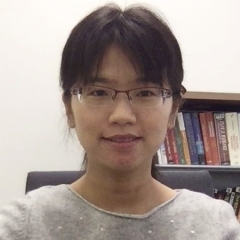
Abstract
The second quantum revolution, the transition from quantum theory to quantum engineering, is leading us towards practical quantum computing. However, there are still many obstacles hindering practical quantum computing. In this talk, I will briefly review the challenges and research opportunities in the state-of-the-art quantum computing engineering technology stacks, including quantum computing devices, peripheral control hardware architecture, compiler design/optimization, programming language design, etc. I will then introduce our recent works, i.e., efficient qubit mapping, superconducting quantum processor architecture design, and quantum program assertions, in tackling some of these challenges.
Biography
Yufei Ding joined UCSB as an Assistant Professor in Nov 2017 and co-direct the SEAL lab together with Prof. Yuan Xie. She received her Ph.D. in Computer Science from North Carolina State University, and B.S. and M.S. in Physics from the University of Science and Technology of China and the College of William and Mary, respectively. Her research interests lie in the broad fields of domain-specific language design, architecture and compiler optimization, and hardware acceleration. Her current research focuses on building high-performance, energy-efficient, and high-fidelity programming frameworks for emerging technologies such as quantum computing, machine learning, and deep learning. She is a recipient of the NSF CAREER Award (2020), IEEE Computer Society TCHPC Early Career Researchers Award for Excellence in High-Performance Computing (2019), NCSU Computer Science Outstanding Dissertation Award (2018), NCSU Computer Science Outstanding Research Award (2016), and Distinguished Paper Award at OOPLSA (2020).